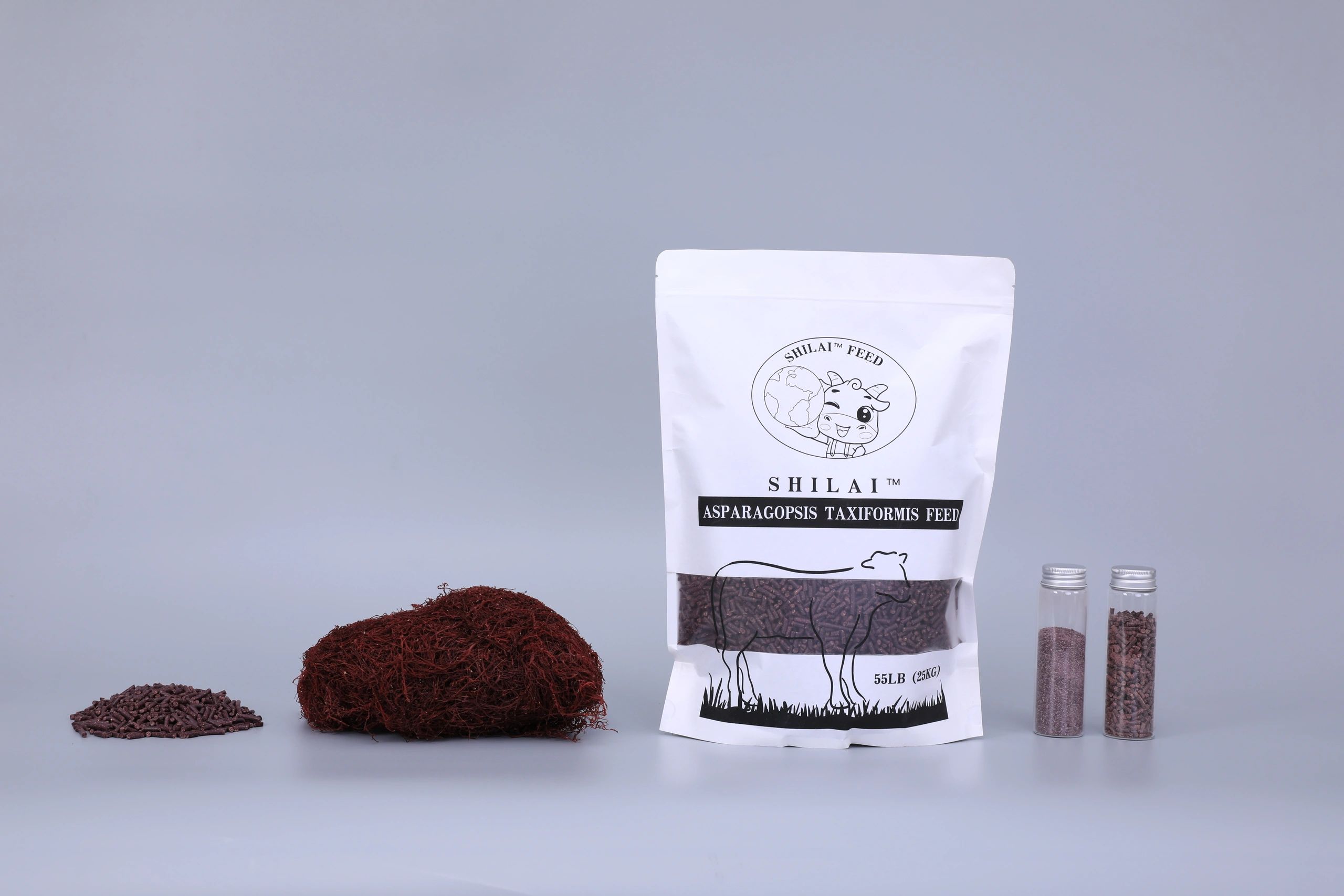Agriculture around the globe contributes heavily to greenhouse gas generation, predominantly via livestock operations.
Methane exerts a stronger warming influence than carbon dioxide, making reductions in methane critical for near-term climate action.
Asparagopsis taxiformis, an oceanic red alga, shows potential as an effective strategy to reduce methane emissions from animals.
Contained within the alga is a bioactive molecule that suppresses methanogenesis in the rumen and reduces total methane emissions.
Integrating Asparagopsis taxiformis into livestock feed has shown positive findings in pilot studies that indicate a feasible way to lower emissions from livestock.
- Furthermore, Asparagopsis taxiformis delivers a range of complementary benefits beyond methane mitigation.
- Enhanced overall livestock health
- Opportunities to develop sustainable aquaculture-driven industries
Ongoing research and development are warranted, yet Asparagopsis taxiformis already shows compelling potential to lower agricultural emissions.
Unleashing the Benefits of Asparagopsis taxiformis Powder for Feed Applications
Using Asparagopsis taxiformis in powdered concentrate form could markedly improve feed solutions for livestock.
The seaweed offers a combination of nutritive and bioactive properties that benefit animal performance.
Including A. taxiformis powder in diets has demonstrated methane-reducing effects in trials and can deliver essential dietary elements.
Ongoing research must address effective dosing strategies, production processes, and chronic safety/effectiveness considerations.
The Promise of Asparagopsis taxiformis for Greener Animal Agriculture
Asparagopsis taxiformis is drawing recognition for its ability to help resolve the environmental impacts of standard animal farming.
Adoption of the algae in feed could enable measurable reductions in methane and a smaller ecological footprint for farms.
Scientific work suggests Asparagopsis can deliver both environmental and animal health/productivity advantages.
Extensive trials and commercial validation are needed, but initial evidence supports continued investment and testing.
Asparagopsis as a Dietary Strategy to Lower Methane
Research highlights Asparagopsis as a potential, effective way to minimize methane from ruminant animals.
The reduction results from interference with methanogenic archaea in the rumen caused by the seaweed’s constituents.
- Several studies have documented considerable methane reductions in ruminants receiving Asparagopsis in feed.
- The strategy of adding Asparagopsis to feed aligns with sustainable agricultural practices for emissions reduction.
- Industry participants are exploring pathways to implement Asparagopsis into commercial feeding systems.
Asparagopsis: A Seaweed Changing the Landscape of Livestock Farming
An oceanic innovation is emerging as Asparagopsis taxiformis demonstrates potential to materially reduce methane from cattle and sheep.
- By including Asparagopsis in diets, researchers have reported notable reductions in methane output with clear environmental implications.
- This breakthrough could help reconcile food production with sustainability by lowering emissions while supporting nutrition needs.
In the search for scalable climate solutions, Asparagopsis is highlighted as a promising and practicable methane mitigation tool.
Improving the Performance of Asparagopsis taxiformis as a Methane-Mitigating Feed Additive
Studies concentrate on ideal handling, formulation, and application rates to make A. taxiformis-based feeds most effective.
The Science Behind Asparagopsis taxiformis's Methane-Lowering Effects

The observed methane reduction results from the seaweed’s compounds that hinder the growth and function of methanogenic microbes.
The seaweed’s methane reduction is associated with bromoform compounds, which are under active investigation for mechanisms and risk assessment.
Blending Asparagopsis into Diets for More Sustainable Farming
Asparagopsis’s nutritional profile and methane-cutting bioactives make it an attractive candidate for inclusion in modern feed formulations.
Asparagopsis integration may improve nutrient density, digestive efficiency, and deliver ancillary antimicrobial or immunomodulatory effects.
A Greener Food Future with Asparagopsis taxiformis
Asparagopsis taxiformis could play a role in reshaping food systems by reducing emissions and enhancing environmental performance.
- In addition, Asparagopsis provides nutrient advantages that strengthen feed quality.
- Scientists and industry experts are actively exploring its uses across aquaculture, agriculture, and food production sectors.
Integrating Asparagopsis taxiformis into existing practices could produce meaningful reductions in the environmental impacts of agricultural activities.
Animal Health and Productivity Gains from Asparagopsis Feed Inclusion
The algae’s profile suggests it could function as a feed supplement that improves both sustainability and livestock outcomes.
Findings indicate the seaweed may improve digestive efficiency and feed conversion, positively affecting growth metrics.
Functional benefits like antioxidant and immune-support properties may accompany Asparagopsis use, reinforcing animal health.

Increasing focus on sustainable production makes Asparagopsis a compelling candidate as evidence and supply chains mature.
Asparagopsis in Methane-Cut Feeds to Help Achieve Carbon Goals
With pressure rising to decarbonize food production, Asparagopsis provides a credible option to lower the sector’s greenhouse gases.
- Studies attribute the methane decline to interference with methanogenic microbes by compounds present in the seaweed.
- Controlled experiments have shown that feeding Asparagopsis can yield notable declines in methane production.
The method represents an innovative feed solution with the potential to change how food systems manage climate impacts.